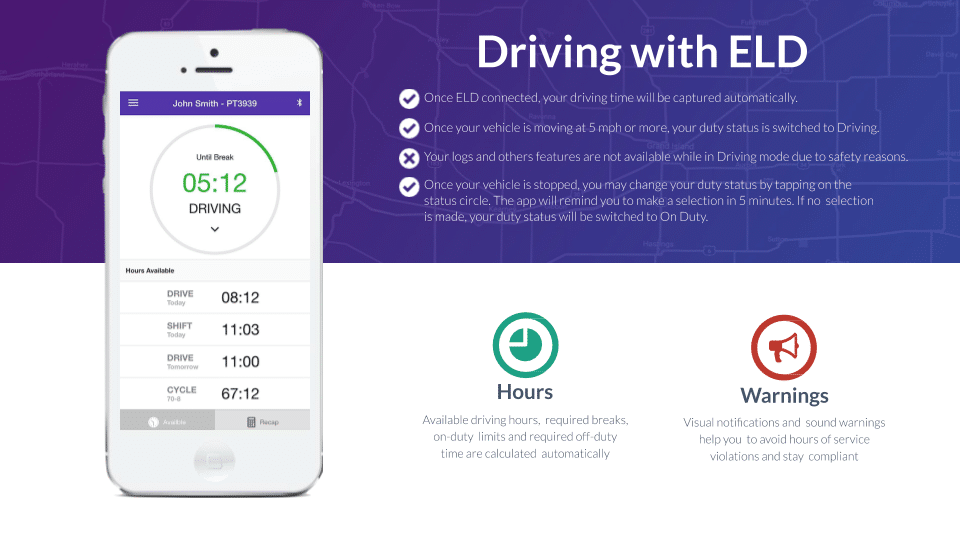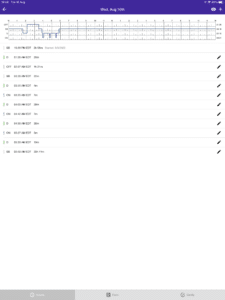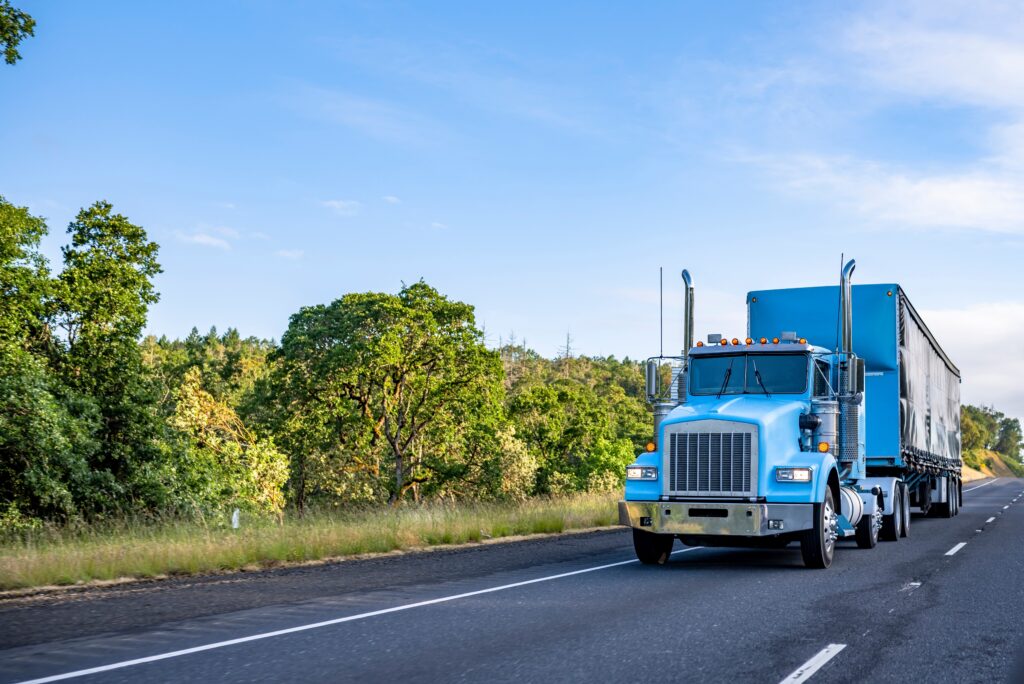Since the electronic logging device (ELD) mandate went into effect, many local drivers have found themselves navigating a system built primarily with long-haul operations in mind. Designed to enforce hours of service (HOS) rules more accurately, the mandate requires most commercial drivers to replace paper logs with FMCSA-approved electronic logbooks. While its goal is to improve safety and reduce fatigue-related crashes, local operations often run into gray areas when it comes to compliance.
For drivers who stay within a 150 air-mile radius, haul short loads, or operate intrastate, it is important to know when ELD rules for local drivers apply — and when they don’t. This article breaks it all down. We’ll walk through the basics of the ELD mandate as it applies to local driving, highlight key exemptions you might qualify for, and offer some best practices to help you stay compliant while minimizing disruptions to your daily routine.
Whether you’re new to electronic logs or reevaluating your current setup, understanding how the rules apply to you is the first step to avoiding violations and keeping your business moving.
Do you have any questions? Talk to ELD Advisor: 650-405-3372 or Request Callback
ELD Mandate Basics for Local Operations
If you’re a local trucker, you might be wondering whether you’re required to use an ELD in the first place. The answer depends on how the FMCSA classifies your driving and whether you fall under any exemptions.
Local driving typically refers to operations that stay within a 150 air-mile radius and return to the same reporting location within 14 hours. This is often called the short-haul exemption, and many local drivers qualify. But qualifying doesn’t mean you’re off the hook completely — you’ll still need to meet certain record-keeping requirements.
Basic ELD requirements apply to most commercial motor vehicle (CMV) drivers who are required to keep records of duty status (RODS). If you’re not exempt and operate a vehicle over 10,001 pounds, you must use an FMCSA-registered electronic logbook to log hours of service.
As of 2025, the FMCSA has maintained its core mandate while increasing scrutiny during roadside inspections. Several states have also aligned intrastate rules more closely with federal standards, meaning local drivers may be subject to the same ELD requirements as interstate haulers depending on where they operate.
One key distinction: interstate drivers must comply with federal HOS and ELD rules, while intrastate drivers may follow state-specific regulations, which sometimes include broader exemptions. However, ELD regulations for local drivers are evolving, and states could narrow exemption criteria, making it important to stay current.

Key Exemptions for Local Drivers
Not all local drivers are required to keep electronic logs. Here are the most common exemptions that may apply to you:
- Short-haul exemption (150 air-mile radius). If you operate within a 150 air-mile radius of your work reporting location and return within 14 consecutive hours, you are not required to use an ELD. However, your employer must keep time records showing start and end times, total hours worked, and breaks.
- 8 days out of 30 rule. If you only need to keep paper logs for 8 days or fewer in any 30-day period, you’re exempt from using an electronic logbook. This is common for drivers who typically qualify for the short-haul exemption but occasionally go beyond the 150 air-mile radius.
- Driveaway-towaway operations. If the vehicle being driven is part of the shipment itself (such as delivering a truck), you’re exempt from the ELD rule.
- Pre-2000 engine exemption. Vehicles with an engine model year of 1999 or older. While the VIN on your registration usually determines this, a newer truck with a pre-2000 engine swap also qualifies.
While these exemptions ease some of the burden, they don’t mean zero paperwork. Drivers operating under exemptions must still meet record-keeping requirements. For example, if you’re claiming the short-haul exemption, time cards or equivalent records are mandatory. If audited or inspected, failure to produce these can still result in penalties.
Hours of Service Rules for Local Drivers
Even if you’re operating locally, HOS regulations still apply and understanding how they affect your day-to-day routes is key to staying compliant.
Local drivers who qualify for the short-haul exemption are not required to keep electronic logs, but they must still follow HOS limits, including:
- A maximum of 11 hours of driving after 10 consecutive hours off-duty.
- A 14-hour limit to complete all work-related activities, including driving and non-driving tasks.
Note: short-haul exempt drivers are not required to take the 30-minute rest break.
If your operation occasionally steps outside these limits, such as extending a shift or running a longer route, those days count against the FMCSA’s 8-day exemption rule. If a driver exceeds the exemption more than 8 days in any 30-day period, an ELD is required.
Local delivery operations must also be mindful of on-duty time spent waiting to load or unload, as it counts toward the 14-hour limit. Planning routes to avoid congestion and delays can help, but drivers should log every segment accurately to avoid violations during inspections.
HOS rules aren’t just about drive time — they affect how you structure your day. Whether you’re running a fleet of box trucks, straight trucks, or Class 8 rigs for local hauls, understanding how on-duty time accumulates is essential. Using an intuitive ELD system that adapts to these real-world driving patterns helps minimize mistakes and keeps your logs inspection-ready.
ELD Compliance Challenges for Local Fleets

Local drivers often face a unique set of ELD-related challenges that long-haul carriers rarely deal with. Many of these issues stem from the stop-and-go nature of local deliveries and inconsistent driving patterns.
Mixed-use vehicles, meaning those used for both commercial and personal purposes, can complicate logbooks. Misusing personal conveyance mode is a common violation. For example, moving a CMV to find parking after a delivery might qualify as personal conveyance, but using it to get to the next load definitely does not.
Another area that causes confusion is yard moves. These low-speed, non-public-road maneuvers must be logged accurately using the yard move status (if enabled by the fleet manager). Incorrectly logging them as off-duty or personal conveyance can trigger red flags during audits.
Then there’s the issue of unassigned driving time. Local fleets often see high levels of unassigned time due to vehicle sharing, shift overlaps, or drivers forgetting to log in. FMCSA rules require that this time be reviewed and either assigned to the correct driver or annotated by the carrier. Letting it pile up can lead to citations during inspections.
Training your drivers and back-office staff to understand these nuances and using an ELD system that flags issues in real time can help reduce errors and improve compliance across your fleet.
Best Practices for ELD Use in Local Operations
To make ELDs work for local operations, it’s not just about installing the device — it’s about using it effectively. Here are some best practices to streamline compliance and keep your team inspection-ready.
- Prioritize accurate, real-time logging. Encourage drivers to log in at the start of their shift and properly set duty statuses — especially for yard moves and personal conveyance. Small errors can lead to avoidable violations.
- Train drivers and admins regularly. Regular training helps drivers stay up to date on changes in ELD regulations and ensures they’re using the device properly. Fleet managers should also know how to handle log edits, assign unassigned driving time, and generate reports.
- Keep documentation ready. Even if you’re operating under an exemption, make sure you have the right supporting records. That includes time cards for short-haul drivers, exemption annotations, and roadside inspection guides available in the cab.
- Have a plan for malfunctions. If your ELD malfunctions, FMCSA requires you to switch to paper logs and fix the issue within 8 days. Your drivers should know how to spot issues, report them, and transition to paper logging if needed.
A reliable ELD provider like HOS247 simplifies these processes by offering an intuitive platform, bilingual support, and robust training resources for both drivers and dispatchers.

HOS247: A Reliable ELD Solution for Local Drivers
Local drivers operate on tight schedules and make frequent stops, so they need an ELD that’s easy to use, dependable, and backed by strong support. HOS247 is a trusted provider offering a driver-friendly solution designed to simplify compliance and improve day-to-day operations for local and regional fleets.
- Easy-to-use platform. The HOS247 ELD app makes it simple for drivers to switch duty statuses, manage DVIRs, and show logs during inspections — ideal for busy routes with limited downtime.
- No long-term contracts. Our flexible monthly plans let fleets grow or adjust without being locked into lengthy agreements. No hidden fees, no surprises.
- Reliable hardware. Built for tough conditions, our ELD maintains stable cellular connectivity and installs in minutes. It’s designed to work wherever your drivers go.
- Multilingual support, 7 days a week. Get help when you need it from real people who speak English, Spanish, Russian, and Polish. If a call drops, we call back — no waiting on hold again.
- GPS fleet tracking. Monitor routes and vehicle activity in real time to improve dispatch decisions and reduce delays.
- IFTA mileage reporting. Automatically track miles by jurisdiction to simplify fuel tax reporting and save time every quarter.
- DVIR management. Complete inspections quickly and digitally. Flag defects, notify maintenance, and stay ready for roadside checks.
- Two-week trial. Try the system risk-free. Test how it works with your team before making a commitment.
With HOS247, local drivers and fleet managers get more than just an ELD — they gain a dependable tool that supports smooth operations, keeps compliance in check, and fits the way they work.

Benefits of Using ELDs Even When Exempt
While qualifying for an exemption means you’re not required to use electronic logbooks, many local drivers find that voluntarily adopting electronic logging can offer significant advantages for their operations, including:
- Accident protection and liability defense. Elog data can be invaluable if you’re involved in an accident. The precise records of speed, location, and driving patterns often help exonerate drivers and fleets when insurance claims or legal issues arise. This protection alone can justify the investment.
- Proof of exemption compliance. Having detailed GPS and time records makes it easy to demonstrate that your operation truly qualifies for exemptions during audits or roadside inspections.
- Proactive maintenance alerts. ELDs monitor engine diagnostic codes and can flag potential issues before they become costly breakdowns. Early detection of problems helps prevent roadside failures and extends vehicle life.
- Operational flexibility for growth. If your business occasionally takes loads outside the exemption parameters, an electronic logbook allows you to seamlessly handle those trips without scrambling for paper logs or violating the 8-day rule. This flexibility can open up new revenue opportunities.
- Simplified IFTA reporting. Even local drivers who cross state lines need to file quarterly fuel tax reports. ELDs automatically track mileage by jurisdiction, eliminating the need to manually calculate state miles or rely on estimated data. This automation reduces errors and saves hours during tax season.
For local drivers considering their options, an ELD system like HOS247 can deliver these benefits while keeping costs manageable and operations simple.
ELD Compliance Checklist for Local Drivers
Staying compliant with ELD rules doesn’t have to be complicated. Here’s a quick checklist to help local drivers and fleet managers stay on track:
- Determine exemption status (e.g., short-haul, driveaway-towaway, pre-2000 vehicle).
- Install and register a compliant ELD (if required).
- Ensure drivers log in at the start of each shift and select correct duty status.
- Maintain supporting documents, including timecards or RODS, exemption notes, and roadside inspection guides.
- Use DVIRs daily and ensure they’re submitted accurately.
- Monitor unassigned driving time and reassign or annotate as needed.
- Conduct internal audits of driver logs and DVIRs on a regular basis.
- Train drivers and office staff on ELD use, HOS rules, and malfunction procedures.
- Have a written plan for ELD malfunctions, including paper log backups.
Following this checklist can prevent costly citations and improve overall fleet performance.

Conclusion
For local drivers and fleet managers, understanding how ELD rules for local drivers work is essential. While exemptions exist, they come with specific requirements, and occasional longer hauls can quickly trigger compliance obligations.
Choosing the right electronic logging solution can make all the difference. A system like HOS247 is built to support local operations, simplify recordkeeping, and reduce administrative burdens — all while keeping you in line with FMCSA requirements.
Whether you’re looking to upgrade your current system or preparing to transition from exemption to elog use, HOS247 offers the reliability, flexibility, and support you need. Try our two-week trial and see the difference for yourself. Get in touch today to learn how HOS247 can support your local fleet.
A Note to Our Readers on Compliance
This article is intended for informational and educational purposes only. It is not a substitute for official regulatory guidance or legal advice. HOS and ELD regulations are complex and subject to change and interpretation by enforcement officials. Please always refer to official sources for the most current and accurate information.

As an expert in B2B and B2C sales, I’ve dedicated myself to perfecting sales processes and client retention strategies in the logistics and trucking industry. I have significantly contributed to the expansion of the ELD service, catering to retail and wholesale clients in need of HOS247 ELD solutions. My unwavering commitment to implementing state-of-the-art sales techniques and technologies ensures the continuous growth and success of businesses I work with.












In the trucking industry, keeping accurate and up-to-date records is more than just a good practice — it’s a legal requirement. For years, drivers have faced the challenge of maintaining precise logs of their hours, routes, and vehicle conditions, often

The electronic logging device (ELD) mandate has transformed how the trucking industry manages hours of service (HOS) compliance. As fleets transition from paper logs and older electronic systems to modern ELD solutions, choosing the right provider becomes crucial for operational

The Logbook App for iPhone to Rely On Electronic logging devices are critical for drivers and carriers that operate under FMCSA hours of service rules. The challenge is finding the right ELD when there are so many on the market.